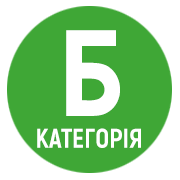КОМУНІКАТИВНА КУЛЬТУРА В УМОВАХ ЦИФРОВІЗАЦІЇ ТА МЕДІАТИЗАЦІЇ
DOI:
https://doi.org/10.32689/maup.philol.2023.2.4Ключові слова:
комунікація, освіта, навчання, цифровізація, компетенції, медіатизація, глобалізація, цінностіАнотація
Стаття має на меті дослідити вплив цифровізації та медіатизації на еволюцію комунікативної культури сучасного суспільства. Головні цілі полягають в аналізі впливу таких процесів, визначенні основних викликів і переваг, як для окремих осіб, так і для суспільства в цілому, а також пропозиції стратегій для підвищення комунікативної компетентності в цьому мінливому сьогоденні. У статті піднято проблему цифровізації та медіатизації, що передбачає трансформацію різних аспектів життя в цифрові формати та інтеграцію медіа в соціальні сфери, формують способи спілкування та взаємодії людей. Аналізуючи ці тенденції, автори прагнули з’ясувати, як комунікаційні моделі та норми вплинули на процес навчання. Окрім того, у статті розглядаються потенційні виклики, які виникають у зв’язку з цими процесами, такі як перевантаження інформацією, проблеми конфіденційності та поширення дезінформації. У статті окреслено позитивні аспекти цього процесу, включаючи розширення глобального зв’язку, покращений доступ до інформації та демократизацію створення та розповсюдження контенту. Зарубіжні автори (Д. Белшоу, Б. Гірш, Г. Крибер та Р. Мартін (Л. Манович, Дж. Стоммел та ін., вітчизняні науковці (В. Биков, Д. Галкін, М. Лещенко, П. Матюшко, О. Овчарук, В. Ребрина та ін.) розтлумачують категорії «цифрової грамотності», «цифрової компетентності», «цифрової культури» та дотичні до них поняття, визначають їх структуру та специфічні особливості, пов’язані зі стрімким розвитком сучасних інформаційно-комунікаційних технологій. У цьому дослідженні обговорюються стратегії розвитку навичок ефективної комунікації, медіаграмотності, критичного мислення та етичної цифрової поведінки. Підвищуючи комунікативну компетентність, у статті стверджується, що люди можуть краще орієнтуватися в складнощах цифровізації та медіатизації, одночасно вносячи позитивний внесок у ширший суспільний дискурс. Отже, у статті досліджено вплив цифровізації та медіатизації на комунікативну культуру, висвітлено виклики та можливості цього процесу, що має на меті надати рекомендаціїї щодо зміцнення комунікативної компетентності в контексті цих трансформацій, зрештою прагнучи до більш ефективного та відповідального спілкування в епоху цифрових технологій.
Посилання
Jenkins H. Convergence culture: Where old and new media collide. New York: New York University Press, 2008. 336 р.
Jenkins H., Purushotma R., Weigeletal M. Confronting the Challenges of Participatory Culture: Media Education for the 21st Century. Foundation Reports on Digital Media and Learning. Cambridge. MA, London: The MIT Press. 2009.
Lew-Koralewicz A. Social competences and the functioning of a student with autism in a mainstream school [in:] K. Barłóg (ed.) A child with autism as a challenge for a modern school. UR, Rzeszów, 2017.
Manovich L. The Language of New Media. Cambridge: MIT Press, 2002. 310 р. URL: http://www.manovich.net/LNM/Manovich.pdf
Martin A., Grudziecki J. Concepts and Tools for Digital Literacy Development. Innovations in Teaching and Learning inInformation and Computer Sciences. 2006. vol. 5. (4). pp. 246–264.
Meyrowitz J. Shifting worlds of strangers: medium theory and changes in “Them” versus “Us”. Sociological Inquiry. 1997. Vol. 67 (1). P. 59.
Neuman R. The Future of the Mass Audience. Cambridge, 1991.
Neuman W. Russell The Impact of the New Media. Mediated Politics : Communication in the Future of Democracy. New York: Cambridge University Press, 2000. – Р. 299–320.
Овчарук О. В. Інформаційно-комунікаційна компетентність як предмет обговорення: міжнародні підходи. Формування інформаційно-комунікаційних компетентностей у контексті євроінтеграційних процесів створення інформаційного освітнього простору. Київ, Україна: Атіка, 2014, С. 7–16.
Sokol M., Rozlutska G., Denizci M., Hvozdyak O., Fedorovych A., Palasevych I. Multiculturalism in Intercultural Tolerant Communication of Innovative Educational Space of Ukrainian Preschool. International Journal of Applied Exercise Physiology. VOL. 9 (10), 2020. P. 141–147. URL: http://ijaep.com/Journal/vol.9.10.pdf
Сокол М.О., Горенко І. В., Боднар О. І. Інноваційний підхід як функціональна складова толерантної міжкультурної комунікації майбутнього педагога. Педагогіка формування творчої особистості у вищій і загальноосвітній школах. № 76/2021. С. 129–134. URL: http://www.pedagogy-journal.kpu.zp.ua/archive/2021/76/part_3/25.pdf






